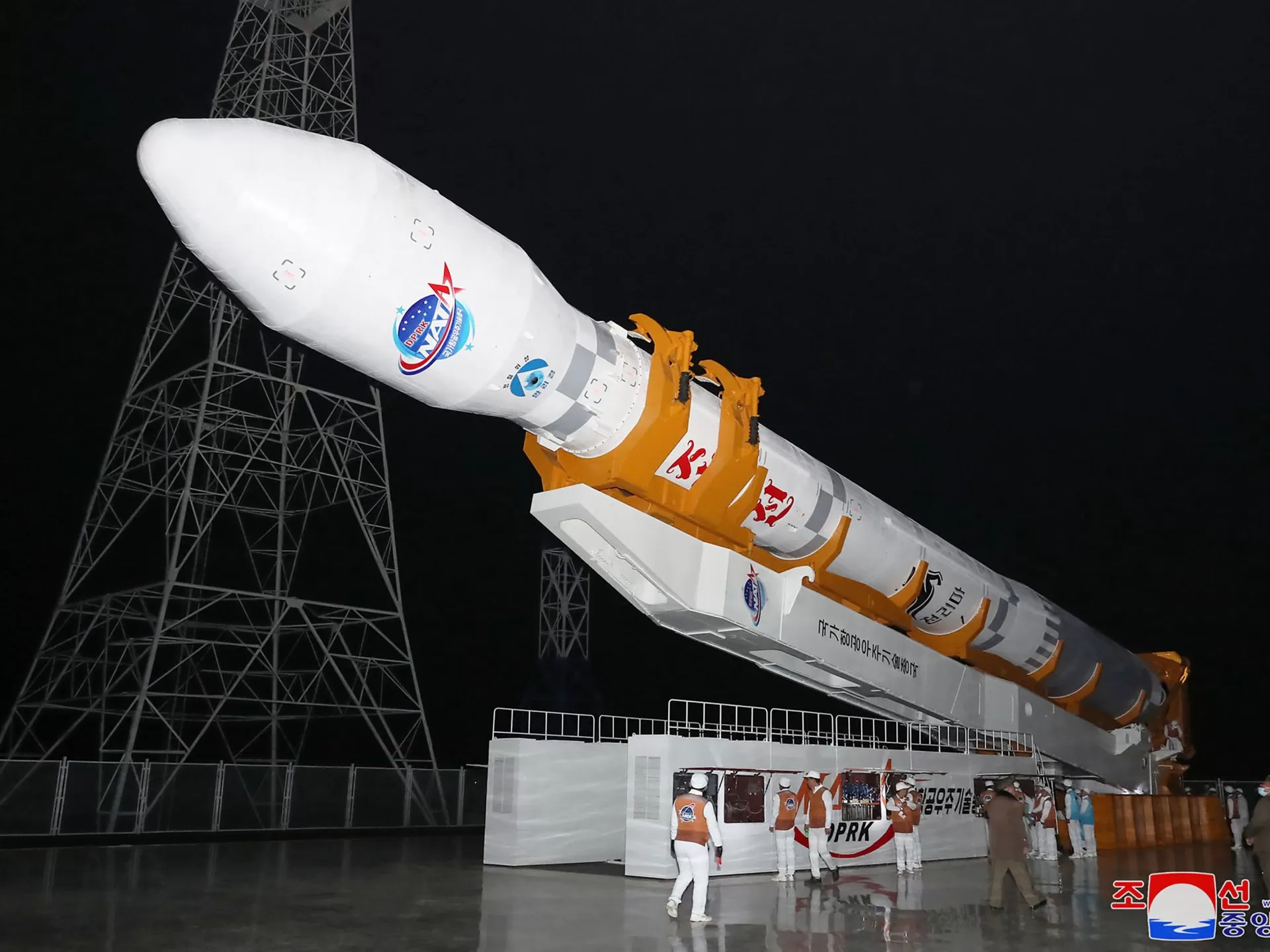Sanctions-breaking launch follows Pyongyang’s third and successful attempt to launch a spy satellite in November.
The Japanese Coastguard said the eight-day launch window began at midnight on Sunday into Monday, with North Korea detailing three maritime danger zones near the Korean Peninsula and the Philippines island of Luzon where the satellite-carrying rocket’s debris might fall.
The notice came ahead of the first trilateral summit between Japan, South Korea and China in nearly five years.
Officials from the United States, Japan and South Korea held phone discussions after the notice was issued and urged Pyongyang to suspend the plan as a satellite launch using ballistic missile technology would be in violation of United Nations resolutions, Japan’s Ministry of Foreign Affairs said.
Nuclear-armed North Korea placed its first spy satellite in orbit in November, following two unsuccessful attempts, in a move that drew widespread condemnation.
The US called the launch, which came two months after Russian President Vladimir Putin met North Korean leader Kim Jong Un at the Vostochny Cosmodrome in eastern Russia and promised technical assistance to the isolated country, a “brazen violation” of UN sanctions.
Kim Jong Un said at the end of last year that Pyongyang would launch three more military spy satellites this year, as he continues a military modernisation programme that saw a record number of weapons tests in 2023.
Experts say that spy satellites could improve Pyongyang’s intelligence-gathering capabilities, particularly over South Korea, and provide crucial data in any military conflict.
Seoul said on Friday that South Korean and US intelligence were “closely monitoring and tracking” presumed preparations for the launch of another military reconnaissance satellite.
The suspected preparations were detected in North Korea’s Tongchang-ri, in Cholsan County, where the Sohae Satellite Launching Ground is based and where the previous launches took place.
Seoul has said that North Korea received technical help from Russia for that satellite launch, in return for sending Moscow weapons for use in its war in Ukraine.
